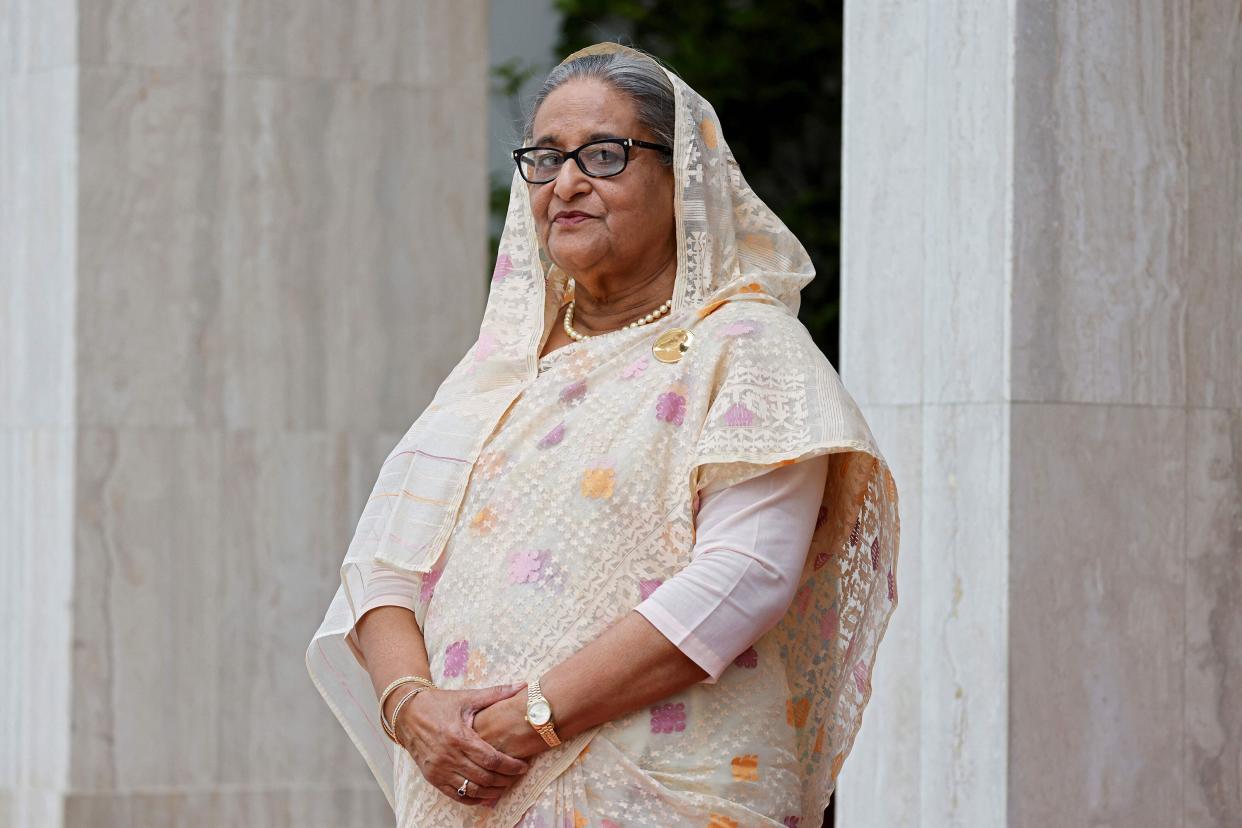Bangladesh to Hold Elections in January as Hasina Seeks Fourth Term

(Bloomberg) -- Bangladesh will hold elections in January as Prime Minister Sheikh Hasina looks to extend her grip on power for a fourth straight term, raising concerns of violence following a crackdown on the South Asian country’s largest opposition party.
Most Read from Bloomberg
Hamas Mastermind Who Tricked Israel Is Top Target in Gaza Tunnels
‘Fed-Friendly’ Data Lift Bonds as S&P 500 Wavers: Markets Wrap
Apple Plans to Make It Easier to Text Between iPhones and Androids
Biden, Xi Declare Progress After Concluding Four-Hour Summit
Xi Says China Seeks to Be Friends With US, Won’t Fight ‘Hot War’
The election commission said the national vote will be held on Jan. 7 with a month-long campaign period. Hasina, who is the world’s longest-serving female leader, has said she wants to go for another five-year term to finish key infrastructure projects. Critics say her government is taking a more authoritarian turn by arresting thousands of opposition supporters and imprisoning senior leaders of the Bangladesh Nationalist Party.
Bangladesh is “committed to making the election free, fair, peaceful and participatory,” Chief Election Commissioner Kazi Habibul Awal said in a televised address to the nation on Wednesday. He urged all parties to shun violence.
The opposition BNP rejected the election schedule, saying the commission declared a plan for “one-sided” polls. “The country is heading toward an inevitable conflict,” said Ruhul Kabir Rizvi Ahmed, senior joint secretary general of the BNP.
As a global exporter of garments and one of South Asia’s fastest growing economies, Bangladesh has come under scrutiny from Washington over the crackdown. The US envoy to Bangladesh Peter Haas has sought meetings with senior officials from the major parties and has pushed for discussions to break the political deadlock.
The US “wants free and fair elections conducted in a peaceful manner and calls on all sides to eschew violence and exercise restraint,” the embassy said in a statement this week.
Hasina is widely expected by analysts to win the elections but opposition groups have said her Bangladesh Awami League party could rig the elections similar to 2018 — an allegation it has repeatedly denied. They have called for Hasina to step aside and let a non-partisan caretaker government lead the country to elections. A top court in 2011 has nullified the caretaker government as it is an unelected administration.
In the past few months, supporters from Hasina’s party, backed by the police, and the opposition have clashed almost weekly. A protest in the capital last month left scores injured, including journalists. The authorities blamed the BNP for instigating the violence, while the opposition party accused the government of infiltrating the gathering to discredit what they said was a peaceful movement.
Human Rights Watch said the government is describing the entire political opposition as the enemy, even as it tells the international community that there will be a credible election.
“In Bangladesh, we do not see that the government is engaging or even recognizing the opposition, as representative of citizen views,” Meenakshi Ganguly, deputy Asia director at Human Rights Watch, said in an interview. “A conversation about the election, which should be part of any democratic process, is also undermined because the opposition parties will not feel that they can have a conversation.”
The opposition-led protests are coinciding with worker unrest over lower than expected increase in wages in the garment industry, which accounts for more than four-fifths of the nation’s exports. The strikes hit 10% of the plants so far, forcing factory owners to stop hiring new workers, said Faruque Hassan, president of the Bangladesh Garment Manufacturers and Exporters Association, in an interview.
(Updates with comment from the opposition from paragraph four.)
Most Read from Bloomberg Businessweek
Sequoia Icon Michael Moritz Bets $300 Million on Reshaping San Francisco
At REI, a Progressive Company Warns That Unionization Is Bad for Vibes
Peter Thiel Is Still Hoping That Donald Trump Just Fades Away
©2023 Bloomberg L.P.



